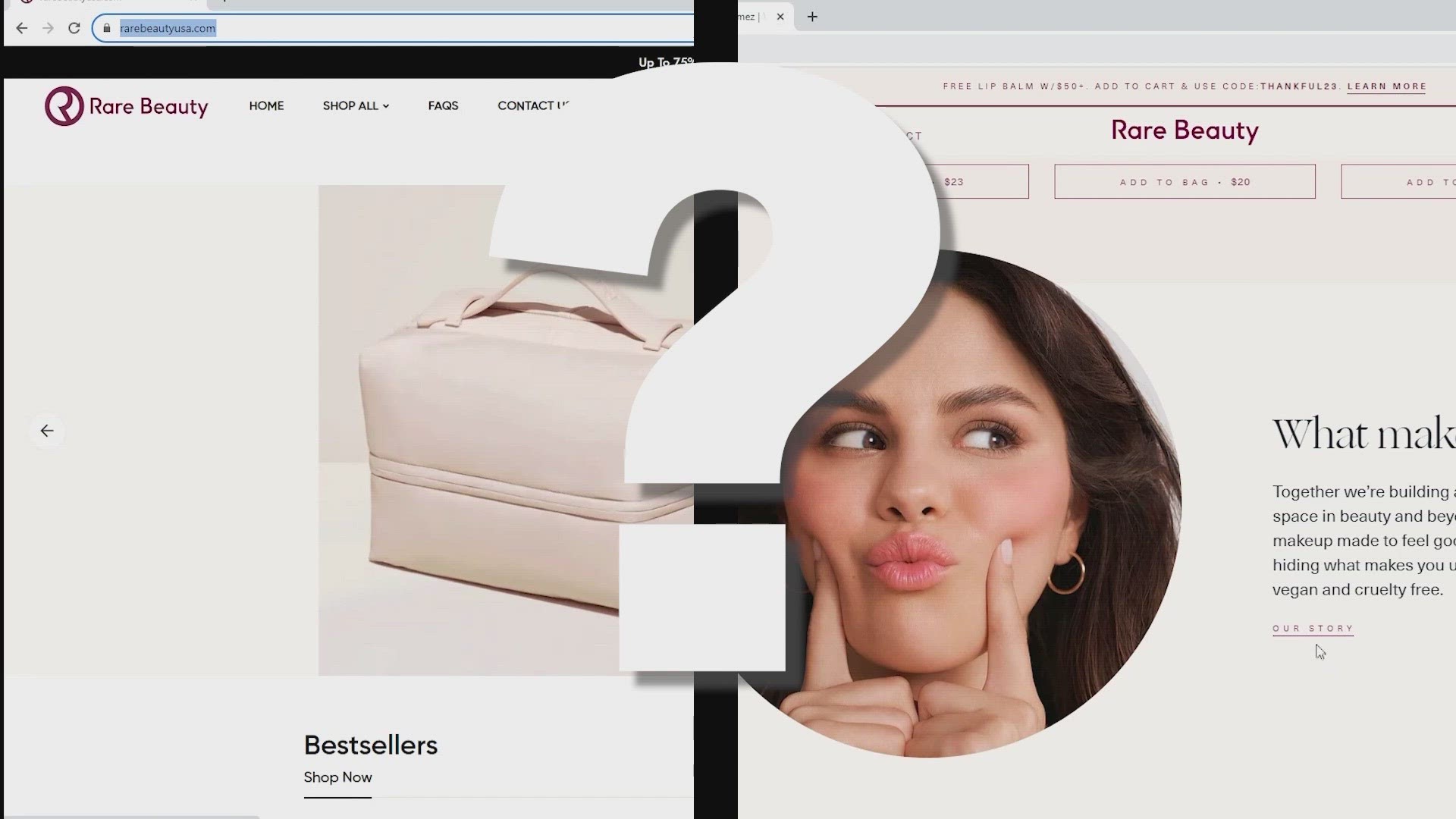SAN ANTONIO — Scammers are stepping up their game as Black Friday shoppers look for online deals and some have attempted to fully copy the design of legitimate sites to fool victims.
Better Business Bureau Media Relations Director Jason Meza told KENS 5 scammers are even paying for sponsored posts on social media sites such as Facebook and Instagram and linking those posts to copycat websites.
"One of our top complaints with the scam tracker at BBB is an imposter website: a site that mimics the real website of a real retailer or big box store," Meza said.
The key to spotting scam websites is to take a close look at the web address or "URL". Meza said scammer will sometimes add or remove a letter, change an "o" to a zero, or throw in a hyphen while hoping it doesn't stand out.
"They are meant to capture your payments or capture your data. We are moving so fast trying to get some deals that we are not checking all the time and we end up making a payment, presenting a debit card or credit card, and we either don't get the item we requested or it's a counterfeit item," Meza said.
The BBB scam tracker has seen reports of multiple copycat sites over the last three days. One consumer said he lost $70 to a "legit looking" version of Gamestop's site, but then realized the URL was "Gamestopsale.com." Another complaint said a person lost $39 dollars to a site that "Looked EXACTLY like Goose Creek Candles site." Yet another complaint said they thought they were on overstock.com but then lost $51. The URL turned out to be "OverstockExit.com"
Meza said scammers have previously attempted to even copy very large sites such as those belonging to Walmart, Amazon, Target, Best Buy, and others.
"Target, Best Buy, all of the big box stores have an imitation site," Meza said. "The logos, the language, everything is top to bottom like the original website."
There are several things consumers should look for to make sure they are not on a copycat site:
First, check the URL. If something looks off, do a separate web search for the site and see if the two URL's match up. Also, there should be a lock icon to the left of the URL. (There is a lock icon to the left of the Kens5.com URL above.)
Second, if a deal looks too good to be true, try to track that same deal down on the main company site. If you see an especially good Target ad, go to Target.com and try to find it from there.
Third, If you are on a new website you haven't seen before, do a search on the site such as "BBB (site name)" or "(site name) scam?" For example, multiple websites, including the BBB, have identified rarebeautyusa.com as a fake version of the real Rarebeauty.com.
Also, some illegitimate sites can still have the lock icon next to the URL. Make sure you double check any deal that looks too good to be true. Meza said consumers need to double check a site's warranties or return policies before clicking "buy."
"We need to do our own homework, our own diligence, and double-check everything," Meza said.

